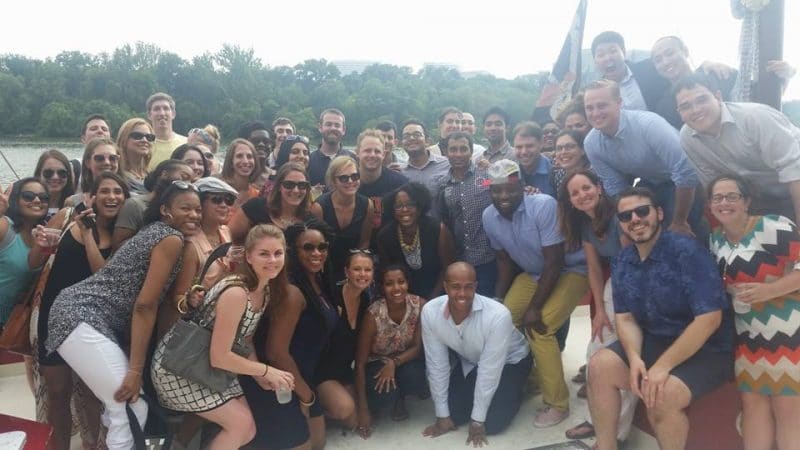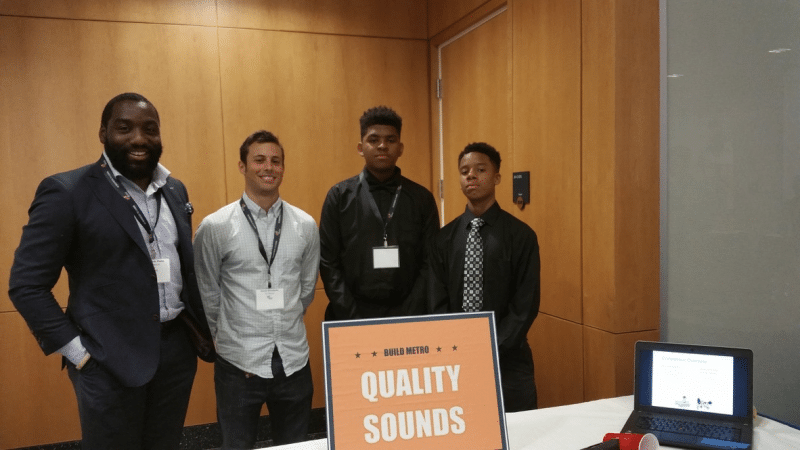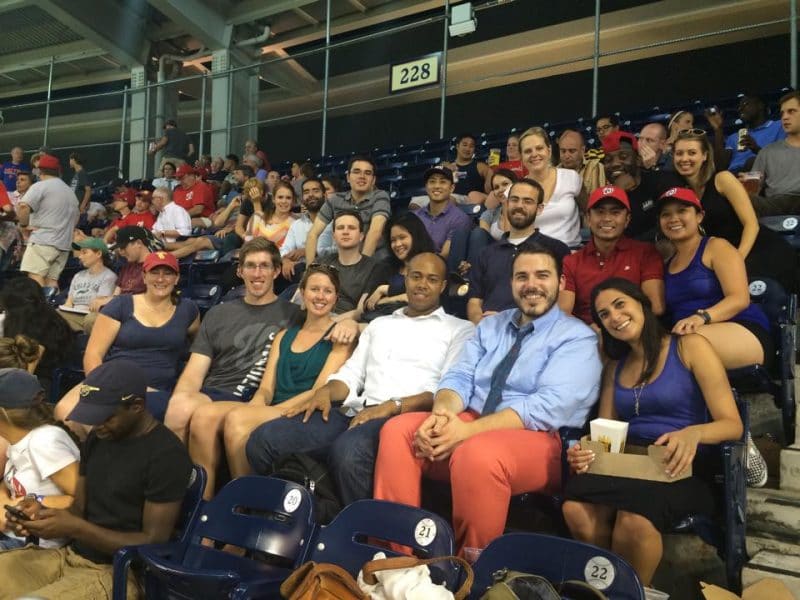
The Education Pioneers (EP) Fellowships are for professionals who are eager to discover how to use their expertise in data, operations, policy, and more to make a difference in the lives of students and families outside the classroom. There are two different programs. The Education Pioneers Summer Fellowship is a 10-week program that previews the impact you can make in the education sector to lay out the foundation for lifelong leadership in education and the 10-month Education Pioneers Impact Fellowship is designed to help rising leaders use their skills for social good and offers a salary with benefits. Both programs support educational equity while also advancing careers.
We talked to Chibundu Nnake, a recent Education Pioneer Fellow and now the Manager of Advocacy and Policy at FOCUS, to learn more about the program and get some application tips.
1. What inspired you to apply for the Education Pioneers Fellowship?
While in law school, I was involved with the National Black Law Students Association (NBLSA) and found the work we were doing to diversify the legal profession and develop socially conscious lawyers to be fulfilling. I then began looking for jobs, roles, and other work that would satisfy this growing desire within me to do something that mattered and had an impact on marginalized communities.
As I continued my research, I kept returning to the education sector. I have been involved in Education in a variety of ways — tutoring, after-school programs, mentoring, substitute teaching and as a fulltime teacher — it remained at the forefront of my mind. However, I was not sure how I could make an impact on students outside of those contexts. That would have been fine, but I also had invested time and money into acquiring a JD and an MBA from this private school, Southern Methodist University, and I needed to utilize this newly acquired knowledge while also paying off this newly acquired debt.
That is when I found the Education Pioneers (EP) Fellowship. Education Pioneers seeks to bring talent into the education sector in capacities outside of the classroom. I was immediately drawn to the opportunity to learn more about the sector while utilizing my skills to add value as we worked to identify solutions to decrease the opportunity gap.

2. How has the fellowship experience shaped your career work?
The fellowship was eye-opening for me. Although I had worked in education in multiple roles and even taught Spanish to eighth and ninth graders, I did not realize how little I knew about the education sector until the fellowship. I worked at AT&T, Oracle, Lanyon and in Congresswoman Eddie Bernice Johnson’s office. I was in school learning and training to become a real estate lawyer, contract drafter, and business merger and negotiator. Now, I wanted to apply those experiences to the work I would be doing in education.
After applying, I was selected for the 10-week program with the option of being in DC or Houston. Houston is my hometown but I chose to join the 2014 DC Fellowship Cohort because of the diverse richness of education opportunities that DC offered. There was the chance to work at the federal, state and local levels for some of the largest school districts in the nation. There were also a multitude of nonprofits, think tanks, and advocacy organizations that were working to improve the opportunity gap. DC would be the best place for me to learn as much about the sector quickly.
I worked in the Office of the Chief Financial Officer at Prince George’s County Public Schools. I evaluated their procurement policies. I interviewed and engaged over 45 internal and external stakeholders to ascertain specific issues within the system, identify opportunities for performance optimization, and brainstorm methods to build a more proficient system with those who went through it.
After the fellowship, I determined that working in policy and strategy would be the best use of my skills in the education space. The hardest part was convincing the sector that I was passionate about decreasing the achievement and opportunity gap. I stayed in DC acquiring different types of experiences in education to complement the experience that I had during my fellowship and also learned more about the education landscape and politics in DC.
The fellowship was a great introduction to the many complexities of education and how the lives of poor, marginalized students, predominantly students of color, are being gambled in the name of theory and the wishes of individuals who have likely never lived or experienced a tenth of the trauma, poverty, or racism. I always try to think about what’s in the “best interests of the child” to guide me in this work. I am not always right, but I am always listening.

3. What tips would you give others applying for the Education Pioneers Fellowship?
Education Pioneers seeks individuals who are looking to lead and wanting to make a change in education. These individuals should be pursuing graduate coursework or have completed their graduate studies. The summer program is a mixture of individuals from all disciplinary areas: law, business, policy, research, etc. They are also looking for leaders with passion.
I applied for the Education Pioneers Summer Fellowship. It takes place during the summer for 10 weeks and consists of individuals who were in the middle of graduate school programs. There were some, like me, who participated in the program after they completed their graduate degree, but there was not a process in place to help you transition from a fellow into a fulltime role at the same or new organization. So the first thing I would advise potential applicants is to know what you hope to gain from the program through experience, networking, and knowledge acquisition.
Secondly, EP is looking for intelligent, passionate, hard-working individuals who genuinely want to be involved or learn about how to effectuate positive change in education. I had shown my interest through my experiences with NBLSA and through stories about my upbringing in public schools. I had been successful at Ohio State as a leader and community organizer. I continued that success at SMU and I brought that record to education and to help children who grow up in experiences like I did or from other marginalized communities similar to mine.
Chibundu Nnake is a passionate education reform advocate who believes that the disparity in the opportunity gap is one of the social justice issues of our generation. As FOCUS’s Manager of Advocacy and Policy, Chibundu manages prepares effective policy and advocacy materials, including action alerts, talking points, issue briefs, letters, opinion editorials, website updates, and legislative and public policy reports. He also builds coalitions to further FOCUS’s public policy agenda. Chibundu earned his Juris Doctor and MBA with a concentration in Nonprofit Associations, Real Estate, and Strategy & Entrepreneurship from Southern Methodist University Dedman School of Law and Cox School of Business. He is also an esteemed graduate of The Ohio State University where he completed his Bachelor of Arts in Sociology and minors in Spanish and African/African American Studies.
Interested in applying? Bookmark the Education Pioneers Summer Fellowship and Education Pioneers Impact Fellowship to your ProFellow account.
© Victoria Johnson 2019, all rights reserved.